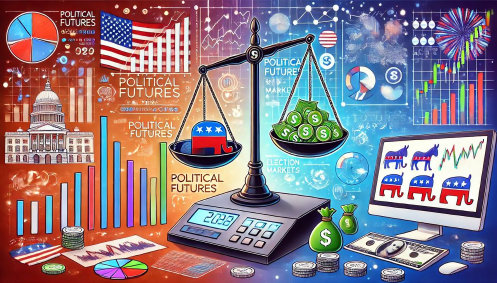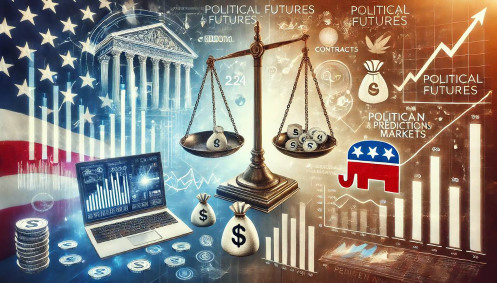
Political futures and prediction markets provide a fascinating glimpse into public sentiment on political events, allowing participants to buy and sell contracts based on predicted outcomes. These markets function similarly to financial markets, but they focus on election results, policy decisions, and other political events.
Though platforms like Intrade and TradeSports once offered venues for such trading, they are no longer operational. However, the concept they popularized continues to thrive on other platforms. In the UK, for example, betting exchanges allow for similar types of wagers on political outcomes, capturing the public’s predictions and opinions on political developments.
Economists often favor political futures and prediction markets because they aggregate various information and opinions, leading to potentially more accurate predictions than those derived from traditional polls or expert analysis. The financial stakes motivate participants to make accurate predictions, utilizing their knowledge and any available information to inform their bets.

Despite their potential for providing accurate insights, some governments and regulatory bodies view these markets with skepticism. The main concerns include ethical issues regarding betting on political results, the potential for market manipulation, and the broader implications of monetizing political outcomes. These concerns stem from the fear that such activities could influence voter behavior or unfairly impact the democratic process.
Nevertheless, political futures and prediction markets continue to attract attention for their ability to provide a real-time barometer of public opinion and predictions about political events. They offer a unique perspective on the dynamics of political forecasting, presenting both opportunities and challenges for understanding the future of politics.